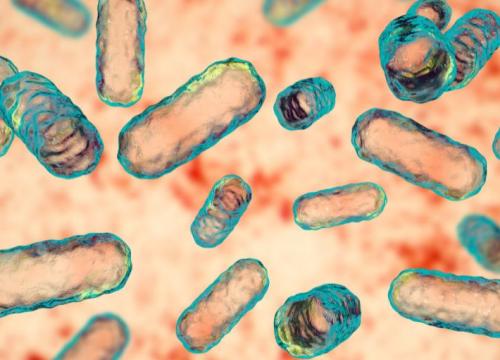Nutrition and PD
A balanced diet is a foundation of good health. For people with Parkinson’s disease (PD), a balanced diet is even more important. In PD, there are some foods that may help to ease symptoms and help brain health, while others can affect the way medications work. While there are many things about PD that cannot be changed, the informed choice of diet can help people to live better with the disease.
Foods That Promote Brain Health
In the science of brain health, we often use the word neuroprotection: the process by which we can support the health of brain cells and their ability to communicate with one another. Over the years, various food groups have been studied in animals and in large epidemiological studies of human populations for their potential to promote brain health. Initial research has provided some evidence about possible benefits of certain foods. Although there isn’t yet evidence about the specific benefits for Parkinson’s disease, what we do know is that these foods are part of a healthy diet.
Neuroprotection
Of all the foods that have been studied for their potential to promote brain health, research into nuts and herbs has shown promise. Here is what we know.
- Walnuts. Walnuts contain an essential fatty acid called omega 3 and a variety of minerals, which early studies associate with a decreased risk for dementia. Try eating five to 10 each day.
- Pistachios. Emerging evidence shows these nuts (the vitamin K and antioxidants in them) may have potential for helping to reestablish lost connections between neurons. They also contain a small amount of lithium, which may help to improve mood. You can eat a few of them two or three times a week.
- Macadamia nuts. Oils in these nuts may increase the production of neurotransmitters that help brain cells communicate with each other. They are high in calories, but a few a day is good for you.
- Cashews. Iron, zinc and magnesium in cashews may boost serotonin — a neurotransmitter linked to good mood — and may reduce memory loss.
- Almonds. Although they have little effect on brain health, almonds contain fiber, which helps relieve constipation (a common symptom in PD).
- Brazil nuts. These nuts contain selenium, a mineral that may have the potential to counteract environmental toxins like pesticides and herbicides. Eat no more than one or two a day.
- Turmeric. This spice turns Indian food orange, and its active ingredient is curcumin. Add tumeric to food, but don’t take it as a supplement.
- Ceylon cinnamon. In animal studies, this spice has shown potential for normalizing neurotransmitter levels and other PD brain changes. Look for Ceylon cinnamon, which is grown in Sri Lanka and labeled as such. Organic cinnamon is also preferable.
Anti-Inflammatory Foods
Fighting inflammation can be another important strategy for keeping the brain healthy. The types of fats you consume may play a role in reducing inflammation in the body, and those known as “medium-chain triglycerides” may be particularly helpful. Coconut oil contains this fat. You can cook with it just as you would with olive oil. Other anti-inflammatory foods include rosemary, oily fish, like salmon, tuna and mackerel, dark leafy green vegetables, like kale, collard greens and spinach and soy products.
Benefits of Purple and Red
Foods that contain antioxidants may also protect brain health. Antioxidants counteract molecules known as “free radicals,” which can damage healthy cells including neurons. Fruits that are purple and red, like blueberries and raspberries, contain pigments called anthocyanins, which are well-known antioxidants. Some studies suggest that drinking green tea (three cups a day) is neuroprotective, because EGCG, found in green tea, is both an anti-inflammatory agent and an antioxidant.
Foods for PD Symptoms
Nutrition adjustments can help ease some of PD’s most common symptoms, both of a motor and a non-motor nature. If you experience digestive difficulties, especially constipation (which is very common in PD), try to drink more fluids, and increase your fiber intake with fruits and vegetables such as kiwi, apples, prunes, dates, figs, radishes, berries, nuts and beans. Probiotic supplements like Bifidobacterium (B. breve, B. adolentis and B. infantis), that add healthy bacteria to the gut, may also be helpful.
If drinking more water leads to urinary incontinence or urgency, increase your fluid intake by eating foods with a high water content such as tomato, cucumber, radish, celery, broccoli and grapefruit. If you struggle with weight loss or loss of appetite, try increasing your calorie intake by eating nuts and foods that contain healthy fats, like coconut and avocado. To stimulate your appetite, try bitter greens like collard and beet greens, or spicy foods. Exercise can increase muscle mass and hunger.
Fatigue and sleep difficulties are also common symptoms of PD. The culprit of these problems may be sugar. When eaten during the day, sweets briefly boost energy, but make you sleepy later. When eaten in the evening, they may keep you awake.
Another reason to limit sugar is that it causes a spike in blood glucose, which contributes to inflammation. When reaching for a snack, try foods that offer a balance of protein and fat, like nuts or avocado, or whole-grain complex carbohydrates, like brown rice and quinoa.
How Foods Affect PD Medication
Another benefit of dietary changes can be improvement in the effectiveness of PD medications. Taking medications at mealtime can affect how quickly they are absorbed into your system, and the rate at which your body uses, or metabolizes them. If you take carbidopa/levodopa (Sinemet) for PD symptoms, you may find that protein-rich foods such as meat, fish, eggs or dairy products, or high-fat foods, lengthen the time it takes for the medicine to kick in, or make the medication less effective.
The solution? Talk to your doctor about taking levodopa 30-60 minutes before a meal or 1-2 hours after finishing a meal. Be aware that high-protein and high-fat snacks can also interfere with levodopa. Your doctor or a nutritionist can give advice on how to schedule the protein you eat, to avoid having it interfere with levodopa.
Conclusion
People with PD need to eat a balanced diet in order to feel their best and maintain energy. Eating more nuts and berries, cutting back on fried food and sweets, and cooking with herbs are all elements of sound nutrition and they may also help you manage your PD.
Sponsored by Kyowa Kirin.

Related Materials
Related Blog Posts

Rehabilitation Care & Parkinson’s: Start Early and Assess Often

